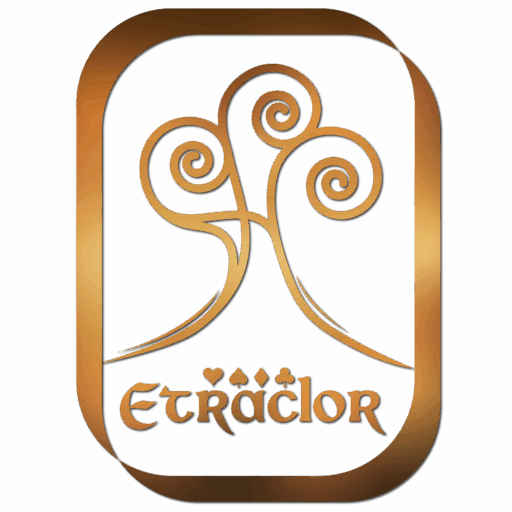Initiate’s Panoply
Here are some additional rules that will soon become essential for truly memorable and engaging gameplay
The Initiate’s Panoply is a series of variants to enhance your gaming experience. You must win a classic game before discovering the rules of a variant, and then win a game with that variant to unlock another, and so on. Once you have unlocked them, you can combine the variants as you wish. Make sure to agree on the variants to be used for each game before drawing your 5 cards!
The Variants
Endless Game
Double Game
Bardic Game
The Divine Power of the Joker
No Mercy!
The Creators’ Choice: Double Game, Jokers, and Endless Game! And you, which combination of variants do you prefer to play with?
Endless Game
From now on, you will keep a continuous score for each of your opponents. You start each game with the score from the last game against that opponent. The score is counted in respect points.
To communicate with your opponent, you must do so by narrating the story of the battle and interpreting your characters. For example, instead of saying “My Queen of Hearts deals 5 damage to your Ace of Clubs, removing its shield and causing it to lose 2 HP,” you can say, “The healer, furious to see their allies fall in battle, brandishes their weapon and charges at the enemy Mage. ‘Take this! You phony magician!’ ” and the opponent responds, “The Mage raises their shattered shield under the impact, but it’s not enough. They look worriedly at the gash on their shoulder… ‘Raaah! You’ll pay for this!’ “
Example
If on January 1st, John wins against Bob and has 15 cards left in his deck, John scores 15 respect points in his “Bob” column. Bob, on the other hand, has no respect points but still scores -15 in his “John” column to ensure that John doesn’t manipulate the score until the next game. The next day, Bob wins the game against John with 5 cards remaining in his deck. John loses 5 respect points, updates his “Bob” column to have only 10 respect points, and Bob scores -10 in his “John” column. The day after tomorrow, Bob wins again with 12 cards remaining. John loses his 10 respect points and scores -2 to remember that Bob now has 2 respect points in his “John” column. The next day, Alice defeats Bob with 23 cards remaining in her deck. She gains 23 respect points against Bob, while Bob scores -23 against Alice, but he still has his 2 respect points… against whom again? The players remember each other and strive to earn the respect of each of their opponents.
Double Game
After playing your first battles, you learn to gather a larger group of Sdrac. Sometimes unfair, sometimes too fast, or even frustrating? Each player uses a complete deck of 54 cards for their Deck. Each player takes their deck, shuffles it, and the game can begin. The game will be longer (30-45 minutes), more balanced, and more strategic.
The Divine Power of the Joker
During a battle, the clouds part, and the sun’s rays give an Etrac in play the strength to exceed his planned action.
A Joker can be used in 5 different ways:
1 – Gives a +5 bonus to the next Attack (like the Boost spell).
2 – Gives a +5 bonus in Defense when an ally is attacked. (Note: An attack always inflicts at least 1 damage).
3 – heals full life a Drac.
4 – Gives a +3 bonus in magic when a mage wants to cast a spell.
5 – If an allied mage is in play, the Joker can counter a spell cast by an enemy mage. In this case, the spell has no effect, but the Magic Scroll is still discarded. (You can counter a counter-spell with another Joker; in this case, the spell takes effect normally).
Add the 2 Jokers to your deck. When a Joker is played, its effect is applied, and then it is discarded. It is a card that is played instantly during the Combat Phase. When a Joker is placed on the table, its effect must be immediately applied before continuing with character actions. If no effect can be applied, the Joker is lost and discarded.
No Mercy
You don’t give up and are ready to give your all in battle! Use this extension to eliminate all of your opponent’s characters! The game ends when a player has no cards left in their Deck, hand, or Arena.
The winner’s score is calculated by counting all their remaining cards outside of their discard pile. When your deck is empty, at the beginning of each turn and when one of your characters is KO’d, you choose a card from your hand to discard.
Once you have no more cards in your hand, you do the same by choosing one of your cards on the table to discard. Now you can maintain the trust of the Sdrac even when you have no resources to continue. Your team is ready to fight at all costs to achieve victory!
Want to go further ?
Up for a challenge?
Discover the latest rules that now allow you to play Etraclor Solo!
